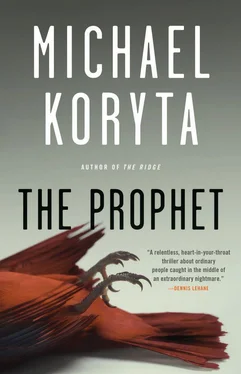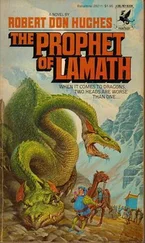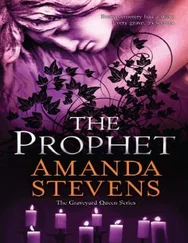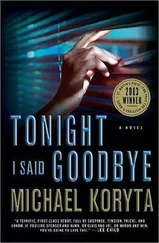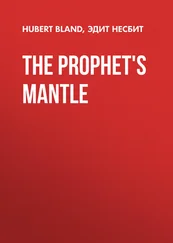And so he told them the news they had already heard. One of their own had been taken from them. The word choice was key. He would never forget the way the word lost had seared him when used with Marie, as if she had been misplaced, a set of car keys, a remote control, a pair of shoes. No, she was not lost.
She was taken.
“We know,” he said, “that this game is of the barest importance. This morning we are all reminded of that in a way I hoped we never would be. Let’s remind ourselves of something else now: we draw strength from one another. Sometimes, we need to take more than we can offer. You boys have to be aware of that now. There will be those—Rachel’s family, her friends, your teammate Colin—who will need more than they have within them. They will need it from you, from me. We have to remember that, and offer it.
“We’ve spent months—years—discussing what this game represents, and what it does not. Today, it represents nothing. Understand that. Be clear on it. And remember… There is no fear or loss so mighty that it can break faith.”
A chorus of agreement, one of the loudest coming from a man in the back of the crowd, and when Kent’s eyes flicked his way the man dipped his head immediately. He was wearing a baseball cap and now his face was down but he was familiar. For a moment Kent stuttered, then looked away and refocused.
“No practice today, no football. Be with your families, be with your friends, be with your thoughts. Make sure those thoughts are directed toward the people who need them.” He paused, then said, “I’ll say a prayer now for those who would like to stay for it.”
They all stayed.
Kent hoped to make it home without comment to the press, but Bob Hackett, the community’s venerable sports editor, three decades on the job and still going, caught him at his car. He’d been there when they won their state title in Kent’s freshman year, he’d been there when they lost the title game with Kent at quarterback his senior year, he’d been there through everything that had happened in between.
Today he was waiting beside Kent’s Ford Explorer, and they leaned together against the car and stared at the ball field that had mattered so much only a few hours ago.
“I’m sorry,” Hackett said.
“Lots of people are deserving of sympathy right now, but I’m not among them.”
“Kent? Someone is going to want to talk with you about it soon enough,” Hackett said. “And I’ll tell you this: it’s easier if you talk to me. If I write it first, the AP will grab it. Then when somebody else calls, you can say you gave your one interview on the topic and want to leave it at that. If you don’t give any, though, everyone will get to bend it their own way.”
So let them, Kent wanted to snap. It’s got nothing to do with anything, it’s so long ago, so far away.
But that wasn’t true. It wasn’t far away, never would be.
“You know me well enough to understand I’m not hunting for the scoop,” Hackett said. “If you don’t want to say a word about her then I’ll—”
“No,” Kent said. “Let’s get it done. Let’s talk about my sister.”
Hackett looked away, and Kent appreciated the man’s genuine discomfort. He didn’t always agree with the sportswriter’s columns, but he always appreciated the way he went about his job. He didn’t treat it as writing about coaches and athletes and games. He treated it as writing about people.
“Go inside?” Hackett said.
Kent shook his head. “Why don’t we sit on the bleachers.”
It was maybe thirty-five degrees, the morning sun not yet doing much to warm the gray day, and Hackett didn’t have a hat covering his bald head, but he nodded and led the way.
8
CHELSEA CALLED AROUND noon.
“I just heard,” she said, no preamble, no questions about why Adam hadn’t returned to her in the night, why he was not at the office now, Saturday mornings traditionally being busy.
“From who?”
“Police. Came to get the file on her. There wasn’t much to it. They had a little trouble believing that.”
“They’re hopeful. I don’t blame them. I wish there was more in it, too. I wish…” He couldn’t continue, and he hoped she thought he was drunk. Somehow, that seemed better. Safer, less vulnerable. Adam? He’s not broken, he’s just drunk. Worthy of your scorn, sure, but don’t waste pity or sympathy on him, please.
“Where are you?” she said. Her voice very soft.
“Home.”
“Your home.”
“Only one I’ve got.”
“Yeah?”
He was silent. He’d spent maybe thirty nights in a row at her place. Maybe forty.
“We’re holding paper on three after this morning,” she said. “That’s probably all we will see today. The Friday night drunks are out. I’m closing up. Somebody needs us, they can call.”
“Sure, whatever.”
“Let me see you, Adam. Please?”
“All right.”
They hadn’t talked much in the years after high school. Ten of them passed without contact at all. She’d been in Cleveland for a time, and then she’d been back, and she’d been married. Travis Leonard. Ex-Army, dishonorable discharge. The first bust he took in Chambers was for selling stolen goods. She came to Adam for the bond, checkbook in hand, and he’d been angry with her, furious, because she was so much better than that guy, that life.
“This is where you ended up?” he said. “Really?”
She closed the checkbook, tilted her head, and looked around the dingy office.
“This is where you ended up, Adam? Really?”
They finished the paperwork in silence. Travis Leonard hit the streets, then promptly missed his court date. Adam came around. Travis was gone, Chelsea was home.
“You’re better off waiting inside,” she said, and that was the first time. Well, second time. First time in a decade. She kissed Adam full on the mouth as she slid off him in the predawn, then kissed her husband on the cheek as Adam slid him into the back of the Jeep two hours later when he finally came home.
There were no phone calls for a few days. He didn’t want to see her, didn’t want to see any more of what she’d become, or for her to see what he’d become. Nobody needed that.
Then one night he was on her porch. She opened the door again. And so it went.
Her house was his favorite hated place. Hated because the title was in her husband’s name but she paid the mortgage and the taxes while his dumb ass sat in county lockup; hated because it was filled with the dickhead’s snakes—he bred pythons, had sixty or seventy of them in the house at any given time, and Adam had always loathed snakes; hated because he wanted so badly to be there, always. Hated because she deserved so much better, and Adam was part of that collapse from the start.
And favorite because she was there. That part was simple, clean. The only thing that was.
It was not her fault that she carried memories. That didn’t wipe them clean, though, didn’t stop him from feeling sick with himself every time he pulled into the driveway, didn’t stop him from sometimes squeezing his eyes shut when she touched him.
She’d been seventeen when they met, a transfer from Cleveland’s West Technical High School. Her father had taken a bust and she’d left the Clark Avenue house they’d rented to move in with an aunt in Chambers. Chelsea and her mother and three sisters. Word about her had spread through the halls and the boy’s bathrooms in under an hour on the first day of school, hormonal kids tearing neck muscles to get a second glance. Winner of a genetic lottery on both sides, with an Italian mother and a Puerto Rican father, Chelsea had a different look from most of the girls in Chambers. Had a different look from most of the girls anywhere. And she had command, too, bored by childish attentions but able to lock you down and melt you with one long, amused exchange of eye contact.
Читать дальше
